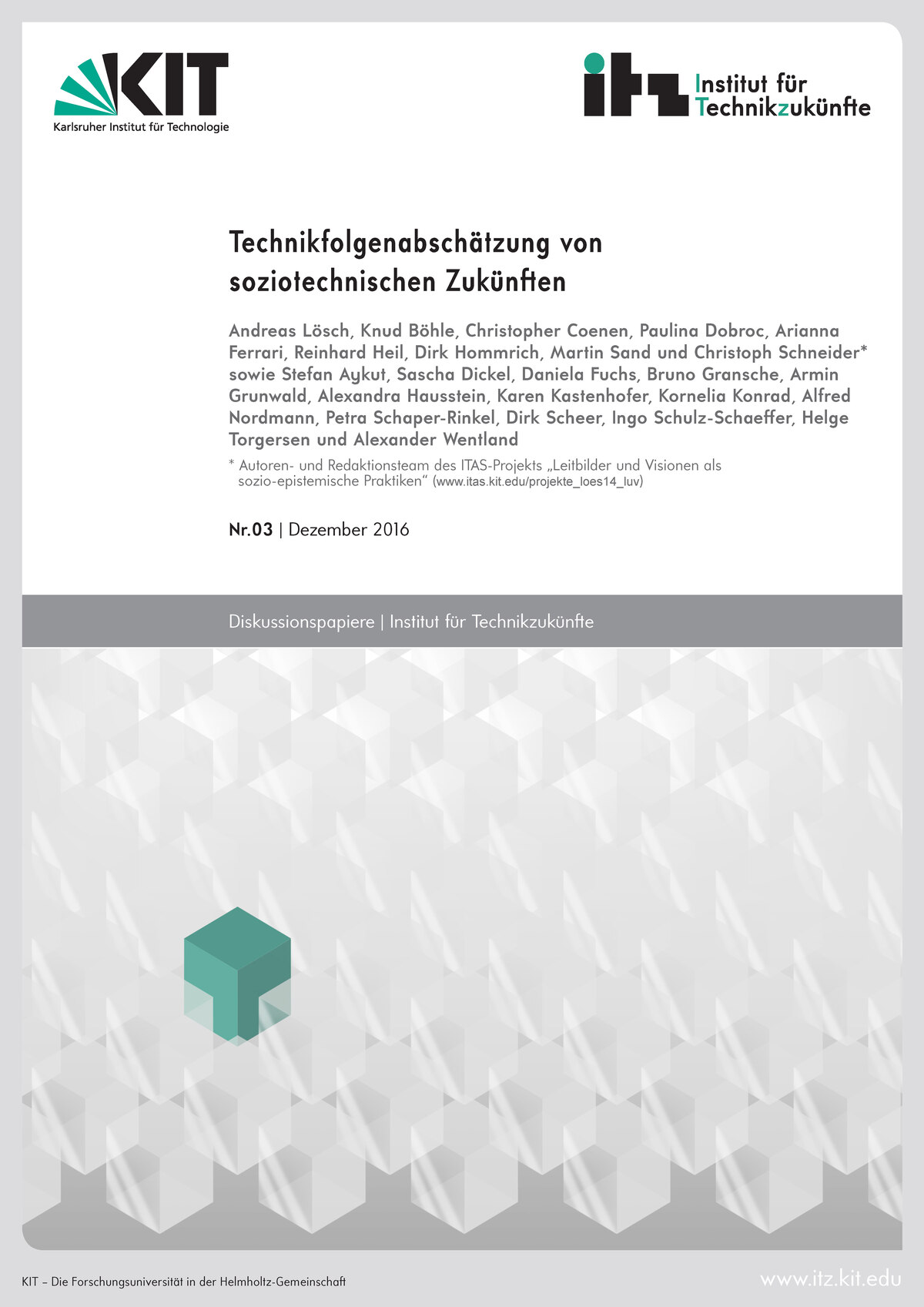Discussion paper on “socio-technical futures”
Currently there is a wide range of concepts about the future of technology and society. It ranges from visions of a completely calculable world (Big Data) to simulations of regional and locally organized forms of energy production (energy transition) to new democratic forms of collectively produced knowledge and goods (Open Source, Open Design). Many of these “socio-technical futures” might be quite speculative, but they nevertheless play an important role in technology development and innovation processes. So there are reasons why the interest in technology-based concepts of the future is growing in politics, sciences, the economy, and society.
Technology assessment should address these concepts theoretically and methodologically in a more substantiated way and reflect more strongly on its own role in their assessment and organization. This is the conclusion of more than 20 researchers from the humanities and social sciences from universities and TA institutions in France, Germany, the Netherlands, and Austria. They presented their motivations and suggestions for such a program in the discussion paper “Technology assessment of socio-technical futures”. It was published in the series of discussion papers of the Institute of Technology Futures (ITZ/KIT) and is available online.
The paper emanated from the workshop “Die Gegenwart technischer Zukünfte – Theoretische und methodische Herausforderungen der Technikfolgenabschätzung“ (The present of technical futures – theoretical and methodological challenges of technology assessment) held in March 2016 in Karlsruhe in which all the authors participated. The workshop was initiated by the project “Visions as socio-epistemic practices” led by ITAS scientist Andreas Lösch and jointly organized by ITAS and the Institute of Technology Assessment (ITA) of the Austrian Academy of Sciences. (24.01.2017)
Further links:
- “Zukunft im Plural” (Future in the plural) – Review of the discussion paper at faz.net
- Series of discussion papers of the Institute of Technology Futures (ITZ) at KIT
- Project description Visions as socio-epistemic practices


